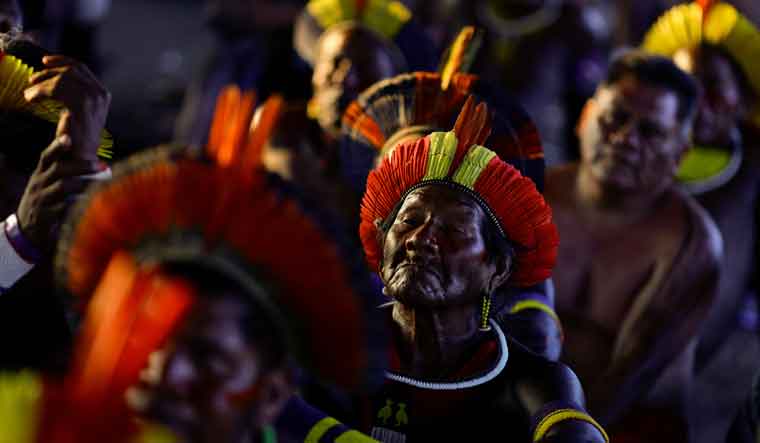Brazil's Supreme Court on Thursday rejected the controversial Marco Temporal doctrine in a historic victory for indigenous rights. The rejection stops a controversial bill that relied on a time-of-occupation-based legal theory to severely limited indigenous land rights.
Marco Temporal is a legal thesis pushed by agribusiness interests to enable exploitation of protected lands. By a 9-2 decision, the court, however, affirmed these territories belong to native peoples regardless of arbitrary dates of occupation.
Marco Temporal would have limited tribes to lands occupied in 1988, when Brazil's current constitution was adopted. Brazil's foremost expert on uncontacted tribes, Sydney Possuelo, had qualified in remarks to THE WEEK at the time of the bill’s passing the lower house as a historic "blow against all indigenous people," because he said it invalidated decades of hard-won progress, reverting possession of many existing indigenous territories.
The court’s rebuke of Marco Temporal echoes with democratic ideals in the vast, mottled nation. Brazil’s Constitution recognises the original rights of indigenous communities to their ancestral lands.
Indigenous advocates say justice has prevailed over opportunists who sought loopholes to seize and despoil these communities’ homes.
Yet the victory over Marco Temporal may be short-lived. Its proponents in Brazil’s legislature are undeterred, pushing a bill to codify the policy rejected by the Court. Here lurks a sinister threat to Brazil's indigenous peoples and irreplaceable ecosystems.
Agribusiness elites decry the court ruling, claiming it obstructs economic progress. But the true cost is not measured in profits lost. It is the slow erosion of Brazil's democratic soul—an insidious chipping away of rights until the marginalised are silenced and the entrenched interests rule.
The threat to the indigenous peoples still looms, but for now, hope flickers brighter.
“This is a momentous, historic victory for Brazil’s Indigenous peoples, and a massive defeat for the agribusiness lobby,” said Fiona Watson, director of research and advocacy at London-based Survival International on the platform X.
The first indigenous president of Brazil's National Indian Foundation FUNAI, Joenia Wapichana, issued a statement saying, "We believe in justice, in the justice of the Supreme Court to provide this legal security for the constitutional rights of Indigenous peoples.”
In Brazil, FUNAI is the government body charged with establishing and carrying out policies relating to Indigenous peoples.
The bill was "an extermination of the indigenous peoples," according to Possuelo, who also served president of FUNAI and is one of the country’s most powerful advocates of indigenous rights.
Because the time frame trick relied on a legal theory—Marco Temporal—that would have limited the rights to land by indigenous people to those who could prove they had a presence in their ancestral lands at the time of the approval of Brazil's current Constitution in 1988, an almost impossible task three-and-a-half decades later.
A good part of the demarcation of lands was done after 1988, explained Possuelo, who has dedicated his life to the study, understanding and protection of the sertão —the Brazilian outback— documenting indigenous tribes. "More than 50% to 60% of the indigenous lands were demarcated after '88. Thus, [the bill defeated by Brazil's Supreme Court would have] canceled practically almost all that the state has done in demarcating indigenous lands."
“We took them down! We have defeated the Marco Temporal,” posted Kleber Karipuna, executive of Coordination of Indigenous Peoples of Brazil, APIB by its Portuguese acronym, a Brasilia-based NGO dedicated to protecting indigenous peoples around the world and telling their stories to the rest of the planet.
Regardless of the dangers ahead, this week's decision "is important to begin correcting public policies and the rights of original peoples in Brazil," said Brazilian Indigenous Rights Advocate Adriana Alves, "but it is also essential to invest in training so that they can explore economically in an autonomous and sustainable way, without depending exclusively on NGOs."
That is indeed the next step, but in the Brazilian legislature the fight to undo or retain the effects of the judicial finding continues.



